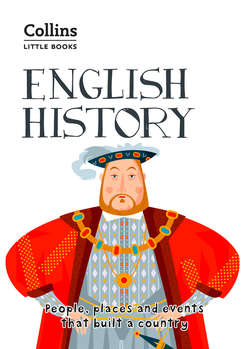Читать книгу English History: People, places and events that built a country - Robert Peal - Страница 9
ОглавлениеAD 43 | The Romans
By the 1st century bc, Roman civilisation was reaching its zenith, and the Roman Empire spread across Western Europe to the Middle East and North Africa. Meanwhile, Britain remained a prehistoric civilisation, inhabited by a people sometimes referred to today as ‘Celts’. The first Roman to lead an expedition to Britain was the Governor of Gaul, Julius Caesar. In 54 BC, Caesar invaded Britain with an army of around 37,000 troops and won the surrender of its Southern tribes. However, Caesar had to return to Italy, and his conquest of Britain was left incomplete.
A century later in AD 43, the Roman Emperor Claudius set his sights on conquering Britain, in part to gain possession of its wealthy gold, silver and tin mines. An invasion force of 40,000 Roman soldiers landed in Britain, which Emperor Claudius later joined with a force of elephants – intended to scare the Britons into submission! For the next four centuries, Roman power spread across England and Wales, all the way to Hadrian’s Wall near today’s border with Scotland. Some remains of Roman rule can be seen today in locations such as Fishbourne Palace in West Sussex, Porchester Castle in Hampshire, and the beautiful Roman baths in Bath.
Michael Conrad
